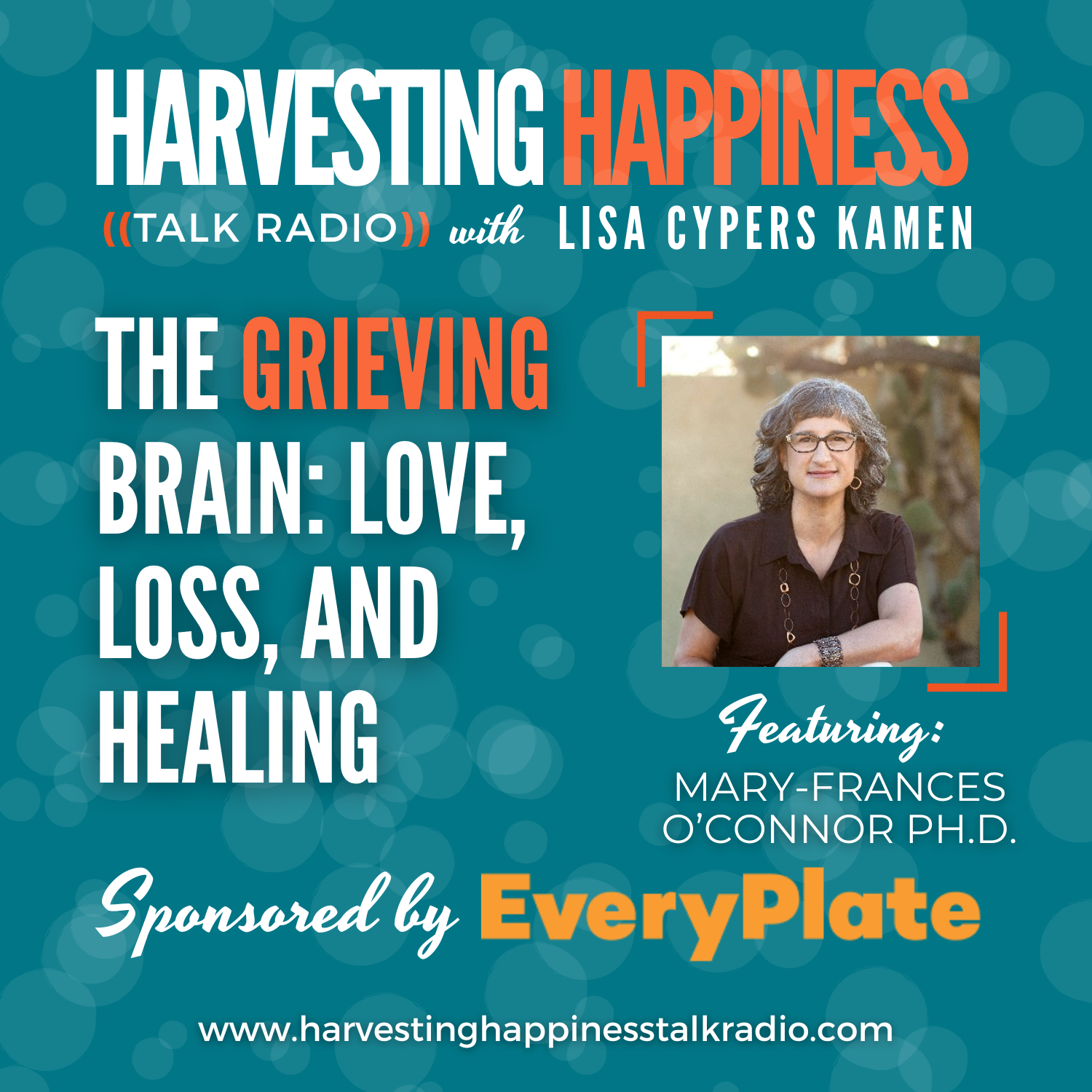
In Western society, the way we handle the death of a loved one is largely outsourced. No longer do we sit in our homes with a loved one who has departed, as we did in the past. This modification changes the way our brain processes our grief and may inhibit the realization that our loved one will not return to us. To discover ways to restore ourselves to a meaningful life after a loss, Harvesting Happiness Podcast Host Lisa Cypers Kamen speaks with the director of the Grief, Loss and Social Stress (GLASS) Lab, Mary-Frances O’Connor. Mary-Frances explains the neurological differences in the brain during periods of grief and complicated grief, or Prolonged Grief Disorder, and delves into insights from her book, The Grieving Brain: The Surprising Science of How We Learn from Love and Loss.
Mary-Frances O’Connor — The Anatomy of Grief:
- Why is it difficult for humans to process the death of a loved one? [3:13]How the brain's response to grief and loss is different from trauma. [5:53]
- Grief feels different for different losses because grief is an extension of the love we felt for the individual. [10:08]
- What are the signs an individual has moved from grief into Prolonged Grief Disorder or complicated grief? [17:03]
- Mary-Frances explains how the brain changes during grief and the different treatments used when working with complicated grief. [22:22]
- How restoring a normative life after grief is different for everyone. [28:37]
This episode of Harvesting Happiness Talk Radio is sponsored by:
EveryPlate — is America's best value meal kit that delivers easy prep, no oven meals without compromising quality, taste, and nutrition right to your doorstep. A lower price point sets EveryPlate apart from the others. Harvesting Happiness listeners can grab a valuable offer worth up to $110. Get started for just $1.49 per meal by going to EveryPlate.com/podcast and entering code 49HH.
About Lisa’s guest:
Mary-Frances O’Connor, PhD is an associate professor of psychology at the University of Arizona, where she directs the Grief, Loss and Social Stress (GLASS) Lab, which investigates the effects of grief on the brain and the body. O’Connor earned a doctorate from the University of Arizona in 2004 and completed a fellowship at UCLA. Following a faculty appointment at UCLA Cousins Center for Psychoneuroimmunology, she returned to the University of Arizona in 2012. Her work has been published in the American Journal of Psychiatry, Biological Psychiatry, and Psychological Science, and featured in Newsweek, the New York Times, and The Washington Post.
“The brain's response to trauma is different than the brain's response to the loss of a loved one.” - Lisa Cypers Kamen
Searching for more tips in achieving sustainable happiness? Visit www.harvestinghappiness.com!
Return to the Harvesting Happiness Podcast Page














